#hungarian diaspora
Explore tagged Tumblr posts
Text

Paprika Hungarian restaurant at 1529 York Avenue, on the corner of East 81st Street, New York, 1978. From the Budapest Municipal Photography Company archive.
37 notes
·
View notes
Text
i still call my parents mommy and daddy. i just never saw a reason to change
i asked my mom what the hungarian equivalent of mommy is
she is now anyu in my phone and i call her anyu and mommy interchangeably
it makes me feel more connected to where she comes from. idk its the little things
#personal#hungarian-american#hungarian diaspora#is that the right term?#btw this is why the sexualization of mommy/daddy makes me uncomfy...#idc if other people like it but it makes me cringe into the stratosphere when people make those jokes to me lmao
7 notes
·
View notes
Text

Are you fucking for real with this? Y’all have really been whipped into such an antisemitic frenzy like.
“Members of a non-European ethnic group were displaced from their ancestral land and forced to take European names in Western nations hundreds of years ago. Now they’re changing their names back to names that have historical precedent in their native languages. (Black people)” is universally accepted as a good thing by liberals / leftists / anti-racists. But for some reason
“Members of a non-European ethnic group were displaced from their ancestral land and forced to take European names in Western nations hundreds of years ago. Now they’re changing their names back to names that have historical precedent in their native languages. (Jewish people)” is considered a horrifyingly evil colonial tactic?
Most Jews living in European diaspora didn’t have surnames at all until a handful of centuries ago. Sephardim were forced to take on Spanish surnames to avoid being killed by the Inquisition following the Alhambra Decree in 1492. Ashkenazim were forced to adopt Germanic and Eastern European names in different nations at different times between the 1780s and the 1850s. Both Ben Gurion and Netanyahu’s “white” names were forced upon them by local Prussian, Russian, or Austro-Hungarian officials less than three hundred years ago. Adopting Hebrew-or-Yiddish-derived last names were banned by most of these laws. When Jewish families left the nations that had forced them to adopt white Germanic last names, they adopted indigenous Jewish last names instead.
David Ben Gurion was born David Güre. He literally just added a Hebrew patronymic prefix to his father’s last name. Meanwhile Mohammed Ali was born Cassius Marcellus Clay. Amiri Baraka was born Everett Leroy Jones. Kareem Abdul-Jabbar was born Ferdinand Lewis Alcindor. When you commend black people for shaking off names that were forced upon them by Europeans three hundred years ago, but vilify Jewish people for doing the exact same thing, you’re antisemitic. There’s no other way around it.
4K notes
·
View notes
Note
Genuine question: What do you think of the argument that very white-passing folks — even if they have black parents, grandparents, etc. — cannot call themselves black?
Personally I think whether or not you're black depends on your actual lived reality. My nephew is white passing. He's from the sister who is about the same tone as me, just a little lighter, and the same racial mixture of Irish and afronative, and his very German father. He's got white skin and blonde hair and blue eyes and genuinely if you didn't know that little boy was technically black you would not guess it.
However. He lives with his visibly black mother, his visibly black sister (same racial mix as him, she just got the darker genes), and their visibly black stepfather and visibly black stepsiblings. He's the odd man out, the lightest of the group, and the one that looks like he doesn't belong. And, when you see him next to his family... suddenly the white skin and blonde hair and blue eyes don't cut it for determining his whiteness, because you start to notice that he shares a whole lot of features with the darker skinned members of his family.
Like me, he's put his foot down about his blackness. If asked at school why he's white but his family is black, he will outright state that he's mixed race and that he is actually black and white just like his sister and mother. He's not wrong. He IS black and white and no small part Native, though I think the complexity of the last part is hard for him to grasp at his elementary school level understanding of race politics.
But what is his reality? Well, when he's with his white father, or my white (passing) mother, he's white. Until he opens his mouth to defend his sister or his mother or a friend of his from racism, at which point said racist's eyes laser-focus on every minute detail of his face to pick out the non-European features covered in pale skin.
This is honestly pretty similar to how a Jewish friend of mine describes her experience, how she is white until she opens her mouth to say something positive about Judiasm or negative about antisemitism, at which point every possible Jewish feature on her face comes under intense scrutiny and her white status is revoked immediately. It's also why I'm always on this "antisemitism 🤝 antiblackness" thing.
I also have a Hungarian friend who is equally peeved at the flattening of racial nuance, as he and his family consider themselves mixed race and Eurasian and not just white, however he has had equal amount of people hurting him for his more blatantly Asian features as he's had people telling him he never experiences racism because he's a white European. Similarly, his reality is that he's white until he says something that doesn't align with white supremacy's rules on white opinion and white behavior, at which point every single Asian feature he has is used as punishment against him.
It's not to say that my nephew, my Jewish friend, or my Hungarian friend don't benefit from their perceived whiteness. They do, in fact! My nephew again is a bit young to have this conversation, but my friends have also discussed with me how they have seen that perception occasionally give them a boost as they move through life. And how, if they would want to keep that boost, they'd have to lean into the concept of whiteness and erase a significant portion of their identities in the process.
This is also spoken about at length by Natives forced to assimilate and intermarry with white people to "breed out the savage", as it were. And I know of lightskinned, though imo not white passing, black people who have discussed the same thing. This even is discussed by people in the Irish, Italian, Greek, and Polish diaspora here in the US- how their current status of "white" came at the cost of not only erasing huge portions of their own culture and history but also practically requires them to lean into white supremacy in order to continue to reap the benefits of white privilege, and how the cost is so much higher than the gain especially when you understand that it doesn't work. You can be One Of The Good Ones all you like and someone dedicated to racism is still going to hate you even once you've gotten rid of all the obvious poc.
To put it simply, these aren't new conversations and I'm never going to be anywhere remotely close to "white-passing" so it's sort of a moot point for me. It's not my reality. But I think listening to those who have lived it is better for gaining a more solid understanding. I don't think that my nephew is wrong to call himself black or mixed black. It's technically true, he came out of a black woman. I also think he is going to have a very different life from his sister, from his mother, from his stepfather and stepsiblings, from his black extended family.
I think rejection from the black community would only hurt him, because he is growing up surrounded by black people in a black family learning black culture, so someone telling him that he shares the same features and DNA but his skin is too light to find community there is just hurtful. Who does it help? Who does it protect? To tell a little kid that he can't call himself part of his own family?
217 notes
·
View notes
Text
Look what Google just recommended to me!!!!
I already own (and love) Shabbat and Portico.
But I am OBSESSED with the rest and must acquire them immediately.
Top of my list is Love Japan because LOOK AT THIS BEAUITFUL BOWL OF MATZO BALL RAMEN!!!!!

We hear a lot about Jewish people in Europe and MENA, but we do not hear a lot about Jewish culture as it blends with East Asian cultures, and that’s a shame. Not just because it erases the centuries of Jewish populations there, but also because there are plenty of people of mixed decent. People who may not have come directly from Jewish communities in East Asia, but people who have a Japanese Father and a Jewish Mother, for example. Or people in intercultural marriages. These are all real and valuable members of the Jewish community, and we should be celebrating them more. This cookbook focuses on Jewish Japanese American cuisine and I am delighted to learn more as soon as possible. The people who wrote this book run the restaurant Shalom Japan, which is the most adorable name I’ve ever heard. Everything about this book excites and delights me.
And of course, after that, I’m most interested in “Kugels and Collards” (as if you had any doubts about that after the #kugel discourse, if you were following me then).

This is actually written in conjunction with an organization of the same name devoted to preserving the food and culture of Jews in South Carolina!
I’m especially excited to read this one, because I have recently acquired the book Kosher Soul by the fantastic, inimitable Michael J. Twitty, which famously explores faith and food in African American Jewish culture. I’m excited to see how Jewish soul food and traditions in South Carolina specifically compare and contrast with Twitty’s writings.
I’m also excited for all the other books on this list!
A while ago, someone inboxed me privately to ask what I recommended for people to read in order to learn more about Jewish culture. I wrote out a long list of historical resources attempting to cover all the intricate details and historic pressure points that molded Jewish culture into what it is today. After a while I wrote back a second message that was much shorter. I said:
Actually, no. Scratch everything I just said. Read that other stuff if you want to know Jewish history.
But if you want to know Jewish culture? Cookbooks.
Read every Jewish cookbook you can find.
Even if you don’t cook, Jewish cookbooks contain our culture in a tangible form. They often explain not only the physical processes by which we make our meals, but also the culture and conditions that give rise to them. The food is often linked to specific times and places and events in diaspora. Or they explain the biblical root or the meaning behind the holidays associated with a given food.
I cannot speak for all Jews. No one can. But in my personal observation and experience—outside of actual religious tradition—food has often been the primary means of passing Jewish culture and history from generation to generation.
It is a way to commune with our ancestors. I made a recipe for chicken soup or stuffed cabbage and I know that my great grandmother and her own mother in their little Hungarian shtetl. I’ll never know the relatives of theirs who died in the Holocaust and I’ll never meet the cousins I should have had if they were allowed to live. But I can make the same food and know that their mother also made it for them. I have dishes I make that connect me to my lost ancestors in France and Mongolia and Russia and Latvia and Lithuania and, yes, Israel—where my relatives have lived continuously since the Roman occupation even after the expulsions. (They were Levites and Cohens and caretakers of synagogues and tradition and we have a pretty detailed family tree of their presence going back quite a long time. No idea how they managed to stay/hide for so long. That info is lost to history.)
I think there’s a strong tendency—aided by modern recipe bloggers—to view anything besides the actual recipe and procedures as fluff. There is an urge for many people to press “jump to recipe” and just start cooking. And I get that. We are all busy and when we want to make dinner we just want to make dinner.
But if your goal isn’t just to make dinner. If your goal is to actually develop an understanding of and empathy for Jewish people and our culture, then that’s my advice:
Read cookbooks.
#Judaism son#Jewish culture#Jewish cuisine#culinary tradition#culinary history#foodways#cultural preservation#tangible culture#jumblr#Judaism#food#cuisine#kugel discourse#Jewish joy#jewish positivity#Jews around the world#East Asian Jews
163 notes
·
View notes
Text
some notes on specifically "middle eastern" (mashriqi + iran, caucuses, and turkey) jewish communities/history:
something to keep in mind: judaism isn't "universalist" like christianity or islam - it's easier to marry into it than to convert on your own. conversions historically happened, but not in the same way they did for european and caucasian christians/non-arab muslims.
that being said, a majority of middle eastern jews descend from jewish population who remained in palestine or immigrated/were forced (as is the case with "kurdish" jews) from palestine to other areas and mixed with locals/others who came later (which at some point stopped). pretty much everywhere in the middle east and north africa (me/na) has/had a jewish population like this.
with european jews (as in all of them), the "mixing" was almost entirely during roman times with romans/greeks, and much less later if they left modern-day greece/italy.
(none of this means jewish people are or aren't "indigenous" to palestine, because that's not what that word means.)
like with every other jewish diaspora, middle eastern jewish cultures were heavily influenced by wherever they ended up. on a surface level you can see this in things like food and music.
after the expulsion of jews from spain and portugal, sephardim moved to several places around the world; many across me/na, mostly to the latter. most of the ones who ended up in the former went to present-day egypt, palestine, lebanon, syria, and turkey. a minority ended up in iraq (such as the sassoons' ancestors). like with all formerly-ottoman territories, there was some degree of back and forth between countries and continents.
some sephardim intermarried with local communities, some didn't. some still spoke ladino, some didn't. there was sometimes a wealth gap between musta'arabim and sephardim, and/or they mostly didn't even live in the same places, like in palestine and tunisia. it really depends on the area you're looking at.
regardless, almost all the jewish populations in the area went through "sephardic blending" - a blending of local and sephardic customs - to varying degrees. it's sort of like the cultural blending that came with spanish/portugese colonization in central and south america (except without the colonization).
how they were treated also really depends where/when you're looking. some were consistently dealt a raw hand (like "kurdish" and yemenite jews) while some managed to do fairly well, all things considered (like baghdadi and georgian jews). most where somewhere in between. the big difference between me/na + some balkan and non-byzantine european treatment of jews is due to geography - attitudes in law regarding jews in those areas tended to fall into different patterns.
long story short: most european governments didn't consider anyone who wasn't "christian" a citizen (sometimes even if they'd converted, like roma; it was a cultural/ethnic thing as well), and persecuted them accordingly; justifying this using "race science" when religion became less important there after the enlightenment.
most me/na and the byzantine governments considered jews (and later, christians) citizens, but allowed them certain legal/social opportunities while limiting/banning/imposing others. the extent of both depend on where/when you're looking but it was never universally "equal".
in specifically turkey, egypt, palestine, and the caucuses, there were also ashkenazi communities, who came mainly because living as a jew in non-ottoman europe at the time sucked more than in those places. ottoman territories in the balkans were also a common destination for this sort of migration.
in the case of palestine, there were often religious motivations to go as well, as there were for some other jews who immigrated. several hasidic dynasites more or less came in their entirety, such as the lithuanian/polish/hungarian ones which precede today's neutrei karta.
ashkenazi migration didn't really happen until jewish emancipation in europe for obvious reasons. it also predates zionism - an initially secular movement based on contemporaneous european nationalist ideologies - by some centuries.
most ashkenazi jews today reside in the us, while most sephardic or "mizrahi" jews are in occupied palestine. there, the latter outnumber the former. you're more likely to find certain groups (like "kurds" and yemenites) in occupied palestine than others (like persians and algerians) - usually ones without a western power that backed them from reactionary antisemitic persecution and/or who came from poorer communities. (and no, this doesn't "justify" the occupation).
(not to say there were none who immigrated willingly/"wanted" to go, or that none/all are zionist/anti-zionist. (ben-gvir is of "kuridsh" descent, for example.) i'm not here to parse motivations.)
this, along with a history of racism/chauvinism from the largely-ashkenazi "left", are why many mizrahim vote farther "right".
(in some places, significant numbers of the jewish community stayed, like turkey, tunisia, and iran. in some others, there's evidence of double/single-digit and sometimes crypto-jewish communities.)
worldwide, the former outnumber the latter. this is thought to be because of either a medieval ashkenazi population boom due to decreased population density (not talking about the "khazar theory", which has been proven to be bullshit, btw) or a later, general european one in the 18th/19th centuries due to increased quality of life.
the term "mizrahi" ("oriental", though it doesn't have the same connotation as in english) in its current form comes from the zionist movement in the 1940s/50s to describe me/na jewish settlers/refugees.
(i personally don't find it useful outside of israeli jewish socio-politics and use it on my blog only because it's a term everyone's familiar with.)
about specifically palestinian jews:
the israeli term for palestinian jews is "old yishuv". yishuv means settlement. this is in contrast to the "new yishuv", or settlers from the initial zionist settlement period in 1881-1948. these terms are usually used in the sense of describing historical groups of people (similar to how you would describe "south yemenis" or "czechoslovaks").
palestinian jews were absorbed into the israeli jewish population and have "settler privilege" on account of their being jewish. descendants make up something like 8% of the israeli jewish population and a handful (including, bafflingly, netanyahu and smoltrich) are in the current government.
they usually got to keep their property unless it was in an "arab area". there's none living in gaza/the west bank right now unless they're settlers.
their individual views on zionism vary as much as any general population's views vary on anything.
(my "palestinian jews" series isn't intended to posit that they all think the same way i do, but to show a side of history not many people know about. any "bias" only comes from the fact that i have a "bias" too. this is a tumblr blog, not an encyclopedia.)
during the initial zionist settlement period, there were palestinian/"old yishuv" jews who were both for zionism and against it. the former have been a part of the occupation and its government for pretty much its entire history.
some immigrated abroad before 1948 and may refer to themselves as "syrian jews". ("syria" was the name given to syria/lebanon/palestine/some parts of iraq during ottoman times. many lebanese and palestinian christians emigrated at around the same time and may refer to themselves as "syrian" for this reason too.)
ones who stayed or immigrated after for whatever reason mostly refer to themselves as "israeli".
in israeli jewish society, "palestinian" usually implies muslims and christians who are considered "arab" under israeli law. you may get differing degrees of revulsion/understanding of what exactly "palestine"/"palestinians" means but the apartheid means that palestinian =/= jewish.
because of this, usage of "palestinian" as a self-descriptor varies. your likelihood of finding someone descendent from/with ancestry from the "old yishuv" calling themselves a "palestinian jew" in the same way an israeli jew with ancestry in morocco would call themselves a "moroccan jew" is low.
(i use it on here because i'm assuming everyone knows what i mean.)
samaritans aren't 'jewish', they're their own thing, though they count as jewish under israeli law.
#jewish#mizrahi#palestinian jews#info#my posts#repost with more info#sorry if this isn't the best time to post it (?) then again this is my blog and i'm not indebted to anyone so (shrugs)#i've been seeing a lot of misinfo too so
329 notes
·
View notes
Note
Okay but what would be the SUPER niche Jewish diaspora vs majority location of communication you'd write a full boom about? (This doesn't have to rely on your extant knowledge, or reality, just the thing you'd want to dive into for poignance and the punny)
Sex, Drugs, and Jazz: Jewish Adolescence in Warsaw, 1935-1942
From Fagin to Rebecca of York: the Construction and Refraction of the Jew in Nineteenth Century British Fiction
Hungarian or Kosher? Jewish Assimilation and Foodways in Budapest, 1918-1938
20 notes
·
View notes
Text
Difference between "Romani"/"Roma" and "Romanian"
I decided to make this post because a lot of people get Romanians and Roma mixed up. It's something that's pretty common, even among Europeans who are more familiar with Roma than Americans are.
"Romanian" comes from latin "romanus", meaning "Roman", inhabitant of the city of Rome (Italy). Romanians are a white people indigenous to (Eastern) Europe living in Romania.
"Roma" (noun) and "Romani" (adjective) mean "people" in Romani language. It probably comes from Sanskrit "ḍoma", which refers to a traveling caste of musicians. Roma are a South Asian diaspora that traveled through the MENA region for about two centuries before arriving in Europe in the Middle Ages.
Many people get Romanian and Romani confused because of the following reasons:
the names are similar: this is true but coincidental, as "Romanian" comes from Latin and "Romani" comes from Sanskrit, and both words have very different meanings
Romania has the largest Romani community in Europe: this is true. The reason is that, upon entering Europe in the Middle Ages, the Roma that arrived in Romania were enslaved and couldn't move out of the country. The slavery of Roma in Romania lasted 500 years. After it ended, in the mid. 19th century, the majority of those Roma remained in Romania, though a few of them migrated to America and to Western Europe.
TL;DR
The Romanians are indigenous to Europe. The Roma are indigenous to India.
Romanians are usually Orthodox Christians. Roma can be of any religion, typically converting to the dominant religion of the region we settled in.
Romanian culture (singular) is a unique culture that was influenced by its proximity to Slavic, Greek, Hungarian, German cultures. Romani cultures (plural) are of South Asian origin and were shaped over the centuries by our travelling through the Middle East and Europe.
Romanians live in Romania. Roma don't have a particular country.
The reason many Roma live in Romania is because Romania has a long history of anti-Romani racism and slavery.
Romanians often suffer from xenophobia when living abroad because they are (white) Eastern Europeans. Roma suffer from racism and xenophobia: we are a brown people whose cultures are very identifiable as non-European. As such, we have suffered and still suffer segregation, police brutality, ghettoization, slavery, pogroms, slaughters, discrimination in the workplace and in education. Anti-Romani racism is still the most widespread form of racism in all European countries to this day.
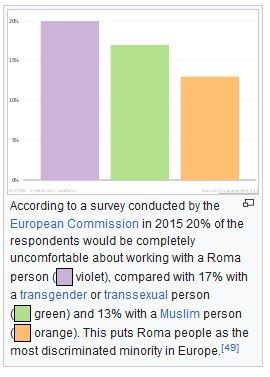
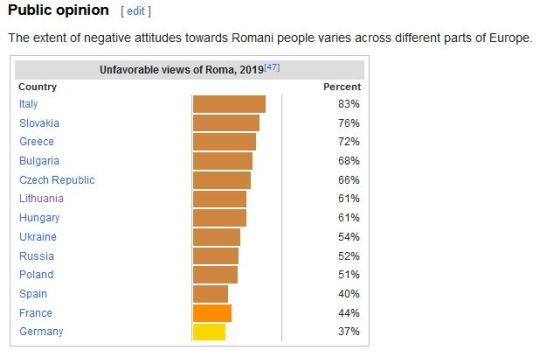
The majority of Roma, especially those living in Eastern Europe, ie around 2/3rds of Roma, are visibly brown, because of our mixed ancestry (South Asian + MENA), though some groups can be lighter due to interracial marriages with white people. It's the case of the British Roma, in particular.
Our traditions, culture and belief system evolved with us from India through the Middle East to Europe. It is thus pretty recognizable as "non-European" and has been used to identify us as "others/foreigners" over the centuries. FYI, there is not one single and unique Romani culture, because cultural beliefs and practices, as well as religion and Romani language dialect can vary a lot between each Romani group. To make it more intelligible, I invite you to think of the larger Romani diaspora as one race that is composed of a manifold of Romani ethnic groups.
Romanian

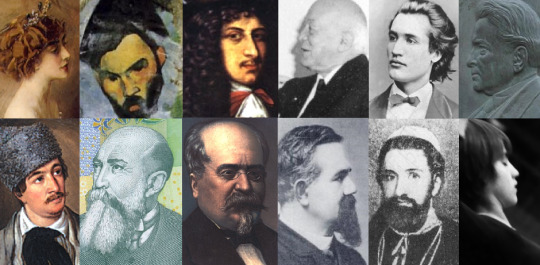

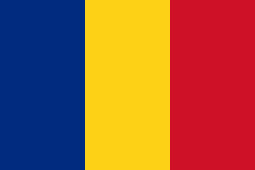



Romani (adjective) / Roma (noun)
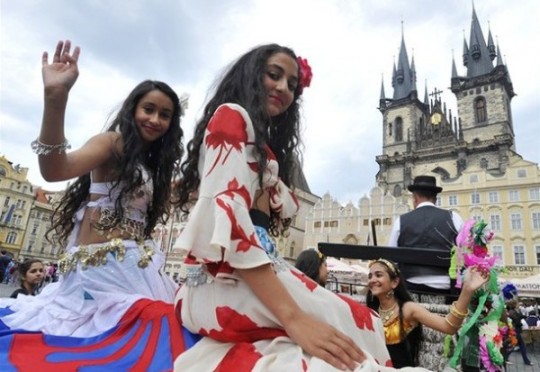
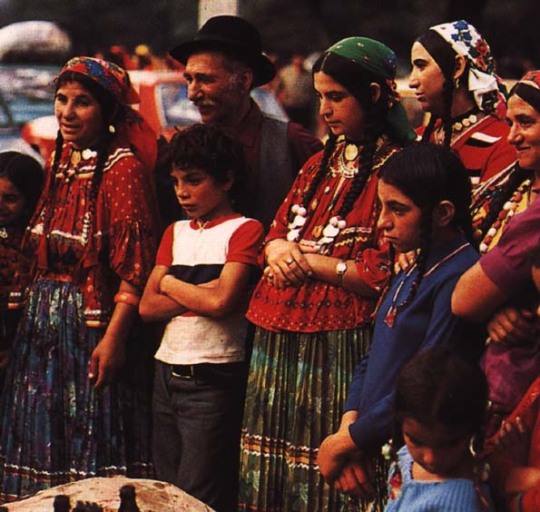
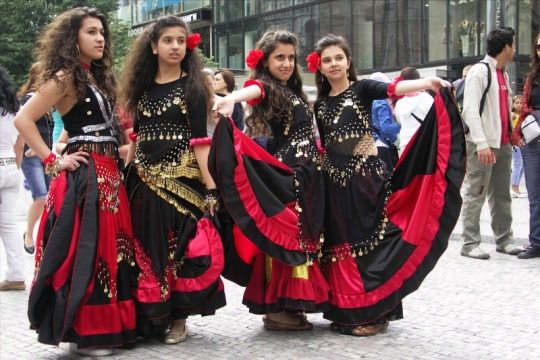
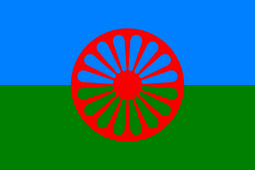


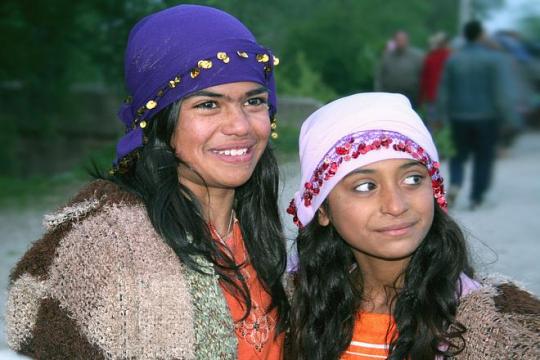
(I have more of these in my "Roma" tag)
Roma =/= Romanian. Romanians are European while Roma are a South Asian diaspora. While Romanians do suffer xenophobia when living in Western Europe and America, anti-Romani sentiment is a type of racism widespread in all of Europe and America. It's particularly important to know the difference between Roma and Romanian, as Romania has a very long history of racism against Roma: slavery, segregation, ghettos, genocide.
#roma#don't hesitate to ask questions if something isn't clear or if you wanna know anything in particular!!
198 notes
·
View notes
Note
Thoughts on the Austro-Hungarian Empire?
Flopped very majorly and got cucked by Yugoslavia and now ex-yu diaspora is taking over Vienna and Hungary is a shithole where Serbs go to buy cheap cheese 😂
16 notes
·
View notes
Note
Part of the diaspora from across an ocean and let me just say it makes me smile to see other queer hungarians.
We were forced to leave after 56 and not a day goes by my heart doesn't ache for our homeland to be free of fascists.
❤️ thank you! we're here and we're kicking! sending you love across the ocean
12 notes
·
View notes
Text
everyone making jewish dallas headcanons pretty please listen up. hebrew was only relatively recently revived as an everyday colloquial tongue and was almost exclusively used for liturgical purposes in early 20th century european jewish diaspora. disclaimer—i’m not saying this is the ONLY option, this is just the one i have the most experience with: one of the most realistic options for 2nd gen immigrant ashki dallas born in NYC in 1947 is his jewish parent/s speaking yiddish and the language of whatever european country tolerated their family. source: my american jewish family that was briefly tolerated by the austro-hungarian empire!
16 notes
·
View notes
Text
Part One — Main Focus will be Joe Liebgott, Edward Shames, and Jewish Identity. Part two will focus on MoTa.
First let me start by saying— these are thoughts that have been forming for a long time. There are things I will say that I've wanted to say for a long time. This is just me publishing my personal opinion with subsequent facts of the matter. However, you can differentiate the two. Put the facts above my opinion and if you believe I am wrong, feel free to send me a message in my ask box about it!
First and foremost being Jewish is a spectrum. There are ethnic Jews who are secular but stay within the community, there are practising ethnic Jews who vary their degrees of religious adherence, there are ethnic Jews who are Christian converts, and there are converts who are not ethnically Jewish. We are an ethnoreligious group— like the Druze or the Yazidis. There are many forms of our religion and many different cultural practices influenced by where they lived. The main groups we have are Ashkenazim; Diaspora that lives in Eastern Europe and everyone uses them as the staple of Jewry, they're not, they're just a part of the community. Mizrahim; Diaspora that resided in the Middle East and Northern African. They have suffered through many genocides (as have the rest shhh). Sephardim; Diaspora that resided in the Iberian Peninsula before the Spanish inquisition fucked them over and they ended up in the Balkans, the Middle East, Africa, and anywhere else. Finally, there are Central Asian Jews who are often a mixture of the Ashkenazi and Mizrahi diaspora. A great example of these are the Bukharan Jews. Whilst they're their own community within our community; Many Iraqi, Iranian, and Ashki Jews ended up in their community due to genocides in the countries they lived in.
So let's talk about some of our Jewish characters in BoB and some important information!!
Liebgott’s mother was Jewish. Yes, he was raised catholic but allow me to remind you of the statement we are an ethnoreligious group. He may not have spoken Yiddish but he did speak a dialect of German because of where his parents were from. Let's be real, speaking your parent's first language at home is normal. If Liebgott wasn't ethnically Jewish he wouldn't have been pissed off at Guarnere’s blatant antisemitism towards Sobel by calling him a Son of Abraham (oy vey).
Joe may not have known anything about the religion. Joe may not have gone to shul. But neither did Billy Joel and he was similarly raised Catholic by a Jewish family and still he has said he feels connected to the community. Joel's family went to Cuba to escape Nazis as they were a German Jewish family. If he didn't feel this connection then the real-life Liebgott wouldn't have fought Guarnere, right?
We note him as being exceptionally hateful towards Nazis. We see him as this feisty individual who could initiate a fight with anyone and might just win. The first time we see the war’s true emotional toll on Liebgott is when he breaks down at the camp. Though, I'd also argue that him not getting help when injured is a big sign of his deteriorating mental health.
Sit down because we are about to take a very emotional ride which will give you insight to any Ashkenazi or Sephardic individual who had a family member perish in the Sho’ah.
As only two generations away from the Sho’ah in my family, I know where my family died and I know where they were from. The most painful thing for me is to look at the train loads of Hungarian Jews arriving at Auschwitz. That is my family. At a young age I saw that film, I remember silently crying as I questioned if my family was captured in this film. If I see them just before they're matched to their death. Now imagine being Liebgott. Imagine being any Jewish individual that came across a camp— death or work camp. Imagine knowing this could've been you if your family didn't leave their homeland. Or worse, knowing that whatever family they left behind is dead. Dead and gone. Unnamed. Unknown. Stripped of their identity and in some camps they're just a number for ease of figuring out who has or has not died. Not every camp used this system, but some did. The camp easy company came across was not one of these but… It was still a camp. I think many people don't realise the sheer amount of camps and ghettos that were spread across the whole of Europe. According to USHMM’s Encyclopedia— over 44,000 camps were established. Additionally there were around 1,000 ghettos. So, we will establish our base estimated number at 45,000. Meaning the likelihood of accidentally coming across one was generally higher than what one may believe. Especially depending on the area you were in.
On the other hand someone who is hardly spoken of; Edward Shames was a practising Jew. He toasted his son’s bar mitzvah with hitler's cognac. Which is such a fuck you to hitler. A bar/bat mitzvah is a celebration of a Jewish person becoming an adult in the religion. There's partying, reading of the Torah, and all around joyous times. It is basically; We lived, you didn't— how successful was your genocide? Oh, yeah, not successful enough. Additionally, Shames held a Pesach Seder during the war. He was as religious as he could be during the war. I do not remember if or how he reacted to the concentration camp during the miniseries. I am a bit ignorant of him, I know some information but not enough to speak any further. Both Liebgott and Edward Shames by Halacha are Jewish. Liebgott's mum is a Jew, so he's a Jew. Edward Shames' parents are both Jewish. Even though to a secular person they are not viewed as being equally Jewish... In my eyes, they kind of are.
This concludes part one of two. You can find part two here: X
14 notes
·
View notes
Text
i was trying to summarize this article using a few quotes but its honestly too much and its too fascinating. review of a book about a really interesting (polish/jewish) artist and author part of an incredible central european literary/artistic tradition, born in the austro hungarian empire, killed by nazis. its about his work and how "prewar cosmopolitan Jewish diaspora can be assimilated to a postwar Israeli nationalist model." yad vashem basically stole these murals he was forced to do by this nazi psychopath after they were found in an apartment, arguing that he was a jewish artist because he was killed for being a jew and therefore they belonged in... israel. although "at no point in Schulz’s life would he have defined himself as a Jewish artist, and to let the conditions of his murder define his work is wilfully tendentious."
16 notes
·
View notes
Video
youtube
https://www.youtube.com/watch?v=I2Kfz0Q36X4
Max Janowski composed such beautiful music for cantor and choir/congregation, and you hear it quite a bit, especially around the High Holy Days, in synagogues. What you don’t hear as much is his art music. This is a concert piece, for soprano and harp, a setting of Hungarian-Israeli poet Avigdor Hameiri’s “Y’rushalayim.” It’s a poem all about the longing to return from millennia of Diaspora to our ancient homeland:
“For a hundred generations I dreamt of you, to cry, to see the light of your face.”
Even though the State of Israel exists and is a whole Thing, the mark of our yearning for our homeland is still with us. The scar of Diaspora does not go away easily, and songs of yearning for homeland still move us.
5 notes
·
View notes
Text
The story of the Jewish people, traditions, calendar, holidays, religion, and culture, are deeply ingrained in their ancestral land, where the religion was birthed, formed, and preserved both in Israel, and diaspora for thousands of years. Jewish culture and celebrations are centered around life in Israel and its land. Agricultural anthology of Mediterranean seasons and crops are preserved from one generation to the next. The thematic tones of self-sovereignty in Israel is at the heart of the Jewish soul.
Jewish longing for Zion predates the Romans - not just the Roman expulsion or the Roman conquest of Judea, not just the Roman Empire, but the Roman Republic, too. It predates Classical Greece. It is written in our scriptures and etched in our collective memory.
It is not merely a symbolic or metaphysical Jerusalem to which we turn in prayer, but the very real and physical one Jews have inhabited for 3,000 years. From every exile over millennia we have returned. During antiquity those driven from Eretz Yisrael returned. During the medieval era, those driven from Eretz Yisrael returned. During the Renaissance those driven from Eretz Yisrael returned. From the Enlightenment to the present day, those driven from Eretz Yisrael returned. We have maintained our connection to the land since first our roots stretched into its soil.
The organized political Zionism of Theodor Herzl is just a small part of this history, notable not for its innovation but for its final success. When Herzl began writing, there were already the Old and New Yishuvim in Eretz Yisrael, anchored by Jewish communities that had never left.
Zionism is inextricable from Jewish practice and identity. The very word "Jew" means 'Judean'. That a small percentage of us may reject this legacy and root for yet another expulsion only serves to illustrate how far they've removed themselves from k'lal Yisrael, from our community, by wishing a crime against humanity be committed against half our number within living memory of the Holocaust and the ongoing ethnic cleansing from the Muslim world. If you see fit to assault or exclude Jews because of this need for national self-determination within some part of the land of our origin, then perhaps you should reflect on your need to punish Jews effectively for existing.
2 notes
·
View notes
Text
By the way if any of y'all missed the Kickstarter for Embroidered Worlds: Fantastic Fiction from Ukraine & the Diaspora, you have until November 12th to 'preorder' it from this page. $20 for the paperback (Plus S&H) or just $1 for the ebook! :') You can also pick up other work from the publisher, of course! Rosalind's Siblings in particular is edited by Bogi Takács, an intersex agender Hungarian Jew and is work about scientists of marginalized gender. And I think e has a work in it, too (Bogi sometimes has eir own work in the collections e edits). Eir partner, R. B. Lemberg, my fellow trans Ukrainian Jew, is in Embroidered Worlds.
8 notes
·
View notes